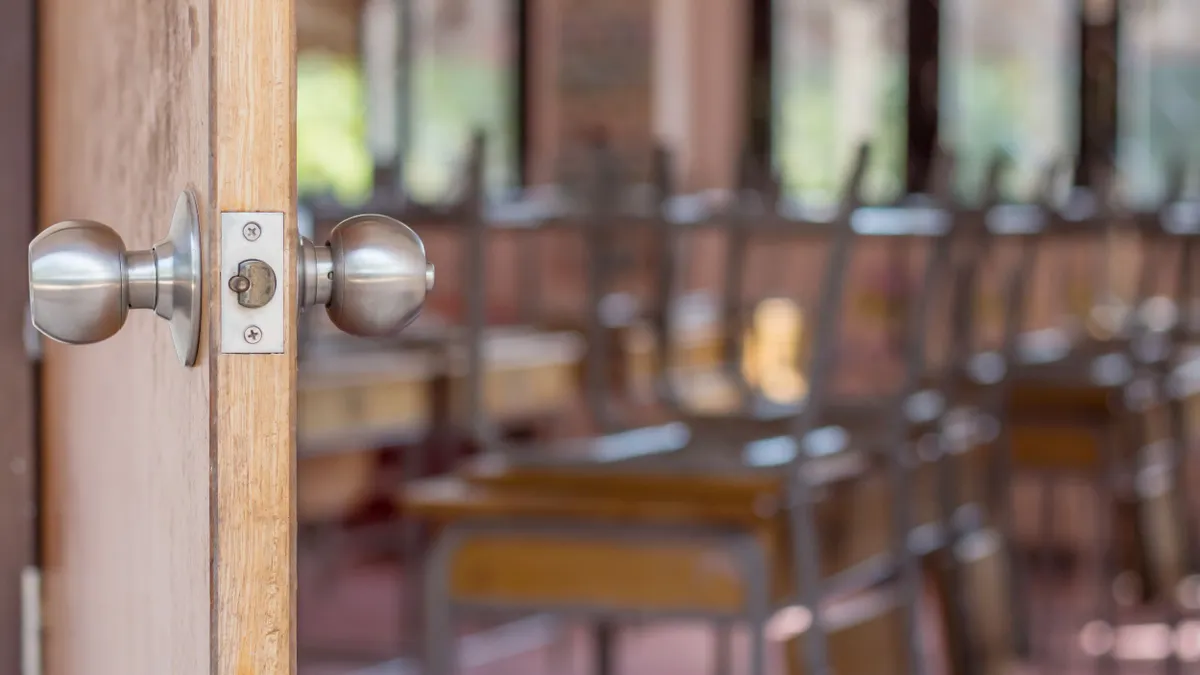Dive Brief:
- A new study on charter schools, civil rights and discipline by Dan Losen says charters need to stop using zero-tolerance policies and suspending students at high rates.
- Critics say that Losen is "anti-charter," but his work finds, overall, it is a small number of charters with high rates of suspension.
- Losen points to Massachusetts school Roxbury Prep as a particularly egregious example; the Boston prep school suspended 57.8% of students with disabilities at least once in 2014-15, according to Losen's research. Kicking students out can artificially inflate the appearance of high performance for such schools.
Dive Insight:
The tide is turning on harsh approaches to discipline in K-12 schools. In Massachusetts, the UP Network of charter schools has walked back its severe approach to student behavior, which saw a reported 325 students suspended in the 2014-15 school year alone. That same year, one branch of UP Academy suspended 5-year-olds more often than any other school in the state, though the practice has since been scrapped. In Seattle, suspensions are not allowed for elementary school students who committed some nonviolent offenses. Washington's Kent School also has sought out alternative discipline tactics after recognizing harsh tactics like suspensions didn't improve student behavior.
"Broken windows" disciplinary tactics based on strict behavior policing disproportionately impact black, Hispanic and disabled students. Nationally, the consequences of this inequity led to the creation of a phenomenon known as the school-to-prison pipeline.
Dismantling the pipeline is now a priority for many schools, as well as a talking point for federal officials from the Department of Education. California currently leads national efforts.










